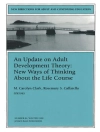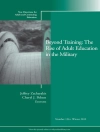Most learning takes place in communities. People continually learn through their participation with others in everyday activities. Such learning is important in contemporary society because formal education cannot prepare people for a world that changes rapidly and continually. We need to live in learning communities.
This volume gathers together all of the scholarly materials directly emanating from a workshop held in August 2005, when a multidisciplinary group of scholars met at Penn State’s College of Information Sciences and Technology to discuss ‘learning in communities’. Initially, a sectioned report on the workshop was published as a special section in the Journal of Community Informatics in 2006. Subsequently, a special issue of 5 full papers was published in the Journal of Computer-Supported Cooperative Work, and a special section of 2 full papers was published in the International Journal of Computer-Supported Collaborative Learning.
Jadual kandungan
I.- Community Inquiry and Informatics: Collaborative Learning Through ICT.- The Participant-Observer in Community-Based Learning as Community Bard.- Learning in Communities: A Distributed Intelligence Perspective.- Spiders in the Net: Universities as Facilitators of Community-Based Learning.- Designing Technology for Local Citizen Deliberation.- Supporting the Appropriation of ICT: End-User Development in Civil Societies.- Developmental Learning Communities.- Social Reproduction and Its Applicability for Community Informatics.- Communities, Learning, and Democracy in the Digital Age.- Radical Praxis and Civic Network Design.- II.- Local Groups Online: Political Learning and Participation.- Community-Based Learning: The Core Competency of Residential, Research-Based Universities.- Sustaining a Community Computing Infrastructure for Online Teacher Professional Development: A Case Study of Designing Tapped In.- Expert Recommender: Designing for a Network Organization.- Patterns as a Paradigm for Theory in Community-Based Learning.- Architecture, Infrastructure, and Broadband Civic Network Design: An Institutional View.- Supporting Community Emergency Management Planning Through a Geocollaboration Software Architecture.
Mengenai Pengarang
John M. Carroll is Edward M. Frymoyer Chair Professor of Information Sciences and Technology at Pennsylvania State University. His research interests include methods and theory in human-computer interaction, particularly as applied to networking tools for collaborative learning and problem solving, and design of interactive information systems. Carroll serves on several editorial and advisory boards and is Editor-in-Chief of the ACM Transactions on Computer-Human Interactions. He received the Rigo Award and the CHI Lifetime Achievement Award from the Association for Computing Machinery (ACM), the Silver Core Award from International Federation of Information Processing (IFIP), and the Goldsmith Award from the Institute of Electrical and Electronics Engineers (IEEE). He is a fellow of the ACM, the IEEE, and the Human Factors and Ergonomics Society.












